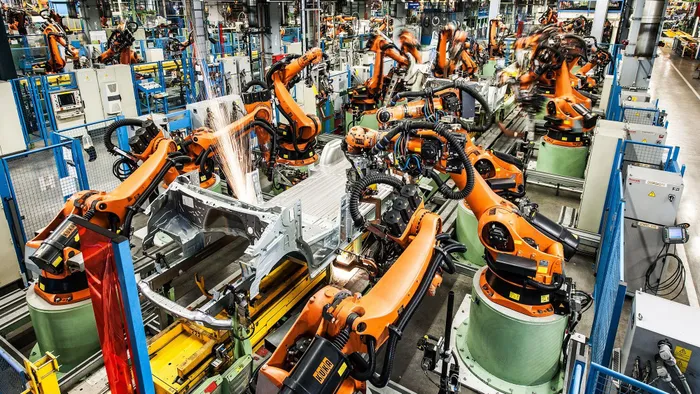
The manufacturing sector stands to lose business amid US tariff threats and a shift to greener energy.
Image: Supplied
With South Africa looking likely to lose its duty-free access to the US market, amid Donald Trump’s controversial trade war and a souring of diplomatic relations, South Africa is being forced to rethink its current trade agreements.
At present, the Africa Growth and Opportunity Act (AGOA) gives South African producers duty-free access to the US market for certain goods, which has provided major benefits to industries such as agriculture, mining and vehicle manufacturing.
However, recent diplomatic tensions with the US mean these AGOA preferences are in peril.
South Africa also enjoys duty-free access to the European Union (EU), its top export destination for vehicles. But with the EU planning to ban the sale of new internal combustion-engined vehicles from 2035, South Africa will lose major export contracts if it does not shift towards electric vehicle (EV) production.
Sipho Mhaga, Customs and Excise Specialist at SNG Grant Thorton, said South Africa needs to look closer to home and examine its own trade agreements in order to capitalise on emerging opportunities and mitigate potential risks.
Although the African Continental Free Trade Area (AfCFTA) and the Southern African Customs Union (SACU) do present such opportunities, inadequate infrastructure, regulatory disparities and non-tariff barriers still hinder growth.
“To leverage AfCFTA fully, South Africa - and indeed all other African countries - must invest in logistics and border efficiency,” Mhaga said.
“Modernising customs procedures, reducing red tape and enhancing transportation networks will facilitate smoother trade flows. Addressing regulatory bottlenecks will also help SMEs participate more fully in regional trade, promoting economic inclusivity.”
However, beyond Africa, engagement with BRICS nations could open up additional trade opportunities.
“While China remains a major partner, other BRICS markets hold untapped potential for South African exporters, particularly in minerals, manufacturing and agriculture. However, non-tariff barriers, such as Brazil's stringent medical equipment import regulations, must be addressed to fully realise these opportunities,” Mhaga added
Busi Mavuso, CEO of Business Leadership South Africa (BLSA) said South Africa’s plans to bolster trade with BRICS members such as India should now be tackled with a greater sense of urgency.
“We must expect that AGOA will come to an end in September when the current programme is set to expire. The end of Agoa is set to damage our automotive exports, and it will damage other parts of our trade with the US, particularly agricultural goods,” Mavuso added.
The green economy also presents opportunities, specifically with regard to retaining existing export markets such as Europe.
To that end, South Africa recently announced a 150% tax deduction for certain investments related to the production of electric vehicles.
Currently, the country does not produce any fully-electric vehicles, although BMW and Ford have commenced production of plug-in hybrid vehicles, in order to safeguard export potential.
“Despite the challenges, though, South Africa still has a unique opportunity to reposition itself as a leader in African trade and beyond,” Sipho Mhaga added.
“By embracing digital customs processes, strengthening regional trade networks and leveraging public-private partnerships alongside private sector investment, the country can create a more agile and resilient trade environment - one that evolves from merely reacting to global trade shifts to proactively leveraging the power of trade agreements to help shape its own economic destiny and that of the African continent.”
Related Topics:
